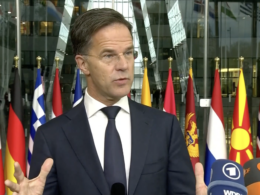According to a recent study by the European Commission, X—previously Twitter, now owned by Elon Musk—has significantly contributed to the dissemination of Russian disinformation on Ukraine, WP reports. The study indicates that such a failure to curb the spread of misleading content could have been a breach of the European Union's proposed Digital Services Act.
Despite pledges by major social media outlets, including Meta, to combat Russian disinformation, the study found that the spread of misleading content and hate speech has flourished. The commission's year-long analysis concluded that, had the EU's Digital Services Act been enacted last year, such inaction would have been a violation.
The study notes, "The audience for Kremlin-aligned social media accounts saw notable growth across Europe during 2022."
Further analysis for the first half of 2023 suggests that this growth has been fueled, in part, by changes in the policies of X.
The European Union has been far more proactive in regulating disinformation compared to the United States. The recently enacted Digital Services Act requires major social media platforms to evaluate the risk of false information, prevent algorithmic boosting of misleading content, and undergo performance audits.
European sanctions have also led platforms like YouTube to ban channels such as RT, formerly known as Russia Today.
The study offers the most conclusive evidence yet that current legal and voluntary approaches to tackle disinformation are ineffective. This follows warnings from EU Commissioner Thierry Breton that X needs to step up its efforts to avoid hefty fines under the Digital Services Act. The study, carried out by the nonprofit analysis group Reset, was conducted using publicly available data due to limited access to internal company data.
The report did not exclusively focus on X; it also criticized other platforms like Instagram, Telegram, and Facebook for their inadequacy in stopping the dissemination of Russian propaganda. Reset's senior adviser Felix Kartte told The Washington Post that these propaganda efforts involve hate speech, threats to national security, and potential influence over upcoming European elections.
According to Reset, the reach of Kremlin-aligned social media accounts grew by an average of 22% across platforms between January and May 2023.
However, X saw a 36% surge in engagement after Musk lifted restrictions on Kremlin-affiliated accounts. Under Musk’s leadership, the platform withdrew from a voluntary code of conduct aimed at combating disinformation and eased content restrictions.
X and Meta have not commented on the findings.





